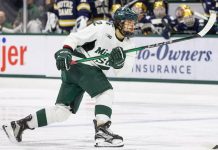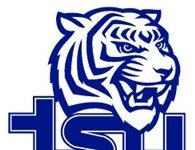Is there life after hockey? Now, it appears, there is hope for a meaningful second career for the aged professional player.
Quinnipiac University is joining with the National Hockey League to help retiring players pursue education and careers, the NHL announced Thursday.
The Life After Hockey Program was launched during a news conference at the Hockey Hall of Fame in Toronto.
The initiative does not necessarily mean dozens of former players will descend upon the Quinnipiac campus to study for four years. But they will receive “educational assessments” from Quinnipiac representatives.
This means the retired players will have their education needs matched with their personal and career goals, to determine the ideal learning environment and method. The options could range from university classes to skill workshops.
According to a Quinnipiac news release, skill assessment “allows players whose career goals do not necessitate a university degree, the ability to acquire different skill sets from highly reputable service providers.”
The players could get help preparing a Life Experience Credit application to Quinnipiac. But, Quinnipiac officials stressed, “acceptance is never guaranteed.”
“The hope is that we will have some hockey players come to our campus,” said Quinnipiac spokesman John Morgan.
Morgan noted the players could be steered toward other colleges or universities.
Asked why Quinnipiac became involved with the NHL, Morgan said Dale Jasinski, a professor of management in the Quinnipiac School of Business, is “a huge hockey fan.”
Morgan said the hockey initiative also fits well with Quinnipiac’s entrepreneurship program.
Jasinski could not be reached for comment. Morgan did not know about any costs Quinnipiac would incur.
Rand Pecknold, the Quinnipiac men’s ice hockey coach, said the program is “great for the NHL and excellent for Quinnipiac, to land a deal like this. It’s great exposure.”
The partnership includes the international human resources consulting firm Drake Beam Morin, who will offer its career transition consultants. The NHL’s alumni association and players association are also involved, along with the NHL itself.
DBM officials said the former players could decide to form their own businesses or do charity work rather than go to college.
The Life After Hockey Program has already been through a successful pilot project, involving 22 former players.
One of those who participated was Jocelyn Lemieux, a 12-year NHL veteran who retired in 1999.
“During the trying times when you leave professional hockey, your confidence level bottoms out,” Lemieux said. “It was great to have the support that the DBM program offers.”
“Having a counselor who understands your skills and even your fears about the future is really important,” he added. “I left our meetings with my shoulders back. I know there is someone who believes in me.”
(Article reprinted with permission from the New Haven Register)


